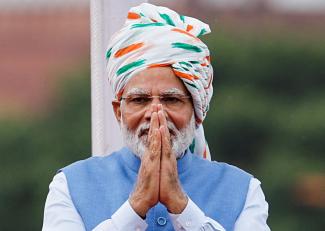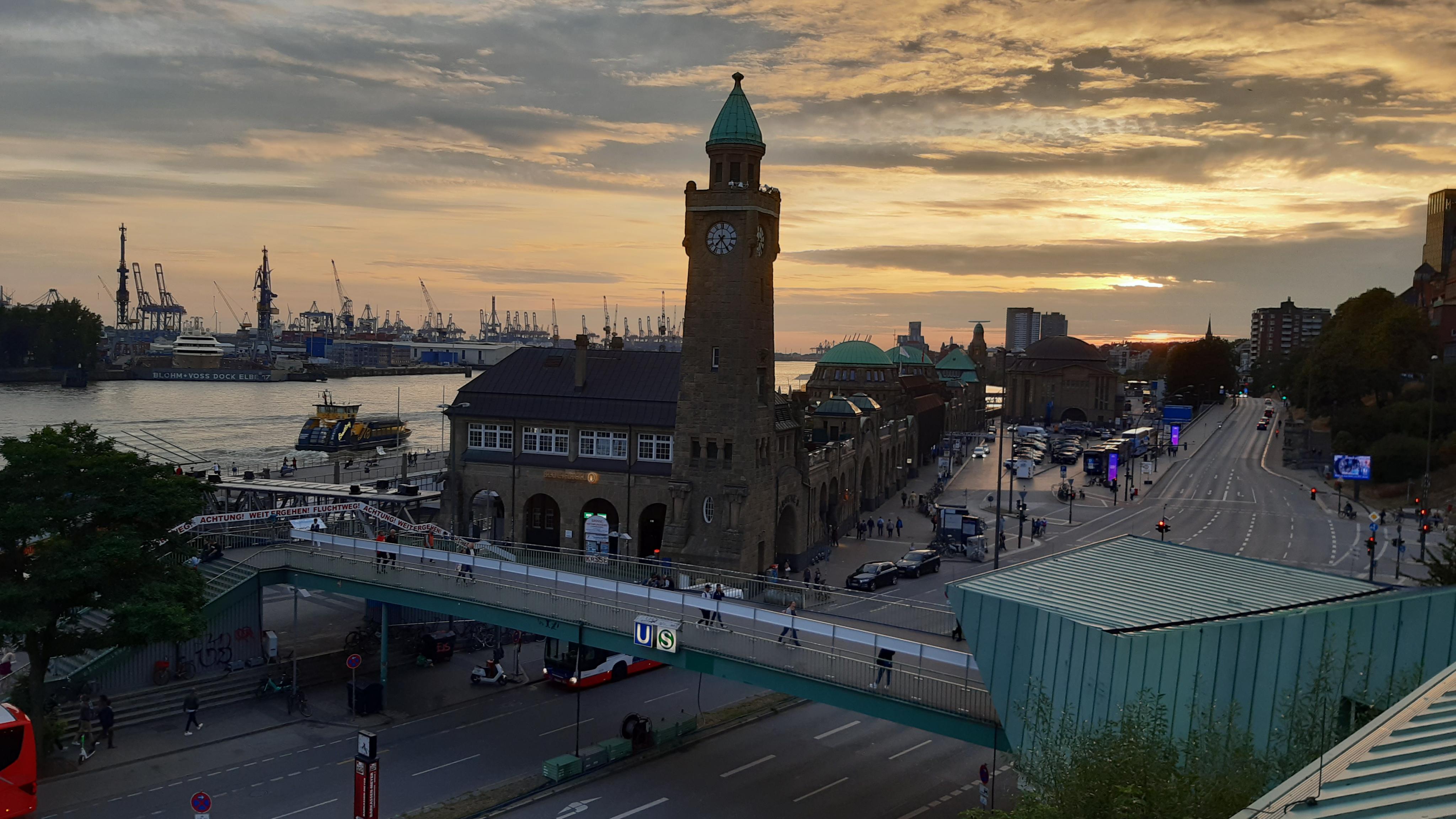Blog
Having an alternative makes a political order more dynamic

It is simply not enough to say that democracy is about freedom of speech and the opportunities free speech offers for having an impact on governance. The great German sociologist Niklas Luhmann, for example, basically defined democracy as always having an alternative government in waiting. In a formal democratic setting, after all, there is a government and a legitimate opposition, with the latter, in principle, being ready to assume administrative responsibility at any time. The result is that democracy is more dynamic and adaptive than autocratic rule, which glorifies the government and delegitimises any opposition.
By contrast, Gershberg and Illing simply deny that institutions matter. They thus not only forego any opportunity to make institutions resilient. They fail to acknowledge what makes democracy, the form of governance they explicitly prefer, so dynamic. It is more than just the freedom to express grievances. The permanent availability of a viable alternative is essential. The institutional setting matters.
Institutions matter very much
Donald Trump’s rise to the White House in the elections of 2016 was simply driven by angry Internet rhetoric. It was also facilitated by the institution of Electoral College which granted him power even though his opponent, Hillary Clinton, had won close of 3 million more votes than he had. This institution denied the majority its will.
It is worth adding that the democratically unbalanced Senate allowed Trump to appoint three Supreme Court justices, tilting the majority on the bench towards the worldview of the minority of voters who elected Republican senators (see Katie Cashman and myself on www.dandc.eu). These are institutional shortcomings and cannot simply be explained with unmonitored and uncivilised open media discourse.
Gershberg and Illing argue that Brexit was a truly democratic event, because voters opted for it. They admit that the term was not well defined, so debate on its true meaning only really started after the decision to leave the EU was taken. Would it not have been wiser to define the term first and hold the referendum afterwards? That would have been institutionally feasible – and that kind of debate would have made some Brexit paradoxes obvious (regarding Northern Ireland, see Ciarán Ó Maoláin). Instead, populist rhetoric turned the issue into a question of patriot feelings.
The international community is facing huge problems. We need global solutions for global problems. We know that authoritarian governments are unlikely to deliver, though democratically legitimate governments have fallen short too.
Too little concern for climate issues
According to the book’s index, climate change is mentioned only on three pages. I’ve checked all three pages diligently, and the topic does not even feature on the third. Global heating, however, is a core challenge, including in regard to democratic governance. Unfortunately, democracy is not good at tackling long-term issues. Policymakers think in legislative terms, so what will happen after the next election, is systematically of minor concern. I am convinced that many of the problems we are currently struggling with result from people knowing that, because of the climate crisis, things cannot go on as they have been in recent decades. Some are in full denial and thus appreciate systematically applied false information. Others are increasingly aware of democratic governments failing. In my eyes, the true paradox of democracy is that it promises solutions for everything but fails to do much about anything that is not of immediate urgency.
Gershberg and Illing entirely shy away from this topic, even though the imminent self-destruction of our species defines our era more than any other phenomenon, even digitalisation. Instead of dealing with this serious issue our species is facing, Gershberg and Illing waste many pages rambling on about what they call “ethnonationalist” leaders in various countries and how they use various kinds of media. They are a bit sloppy, for instance when they fail to point out that populist authoritarians hardly ever gain office with the support of a majority of voters. They typically benefit from election systems that create winners with fewer than 50 % of the vote. By comparison, it is unimportant that they mention the “Arab spring of 2010”, which was actually in full swing as a pan-Arab movement in early 2011.
Misunderstanding Modi
They are wrong to call India’s Prime Minister Narendra Modi an “ethnonationalist”. He is actually a Hindu supremacist. India’s huge Muslim minority is not ethnically different. The authors are wrong, moreover, to simply state that Modi is offering the Hindu majority something that it finds appealing. Hinduism is a caste-based religion which does not lend itself easily to a sense of faith-based solidarity.
The big achievement of the Hindu supremacists has been to create a sense of Hindu nationalism which is historically unprecedented. Most of their leaders belong to the high castes. It is fundamentally astonishing that they are now appreciated by members of lower castes. They were not in the past, though they did occasionally manage to start anti-Muslim pogroms. In Modi-supporting circles, the traditional elites are still in very much in charge, but their claim to be speaking for “the people” now resonates in ways it did not do in the past. In their eyes, anyone who opposes them is “anti-national” (see Arfa Khanum Sherwani on www.dandc.eu).
Things are not much different in the USA, by the way. Trump is a billionaire, not a man of the people. He is supported by Harvard- and Yale-educated senators who love to agitate against “elites” as though they themselves did not belong to them.
Oligarchic populism
There is such a thing as oligarchic populism, but Gershberg and Illing do not take account of it. It serves the interests of the superrich while claiming to represent ordinary people (see a previous blogpost of mine). It thrives on prejudice, but is not good at designing policies. It is no coincidence, of course, that those who benefit from fossil fuels have a tendency to support oligarchic populism – including Russian President Vladimir Putin or Crown Prince Mohamed bin Salman of Saudi Arabia.
Gershberg in Illing, however, stick to the misleading narrative of Trump basically mobilising “the people” against “the elite”. Their book would be much better if they had assessed to what extent this misleading narrative results from specific aspects of innovative Internet media and to what extent it results from conventional media endorsing it. Given that they endorse it themselves, we obviously cannot expect such an assessment from them.
The full truth is that a distorted notion of balance in conventional media has helped Trump. US journalists are trained to give equal space and weight to both major political parties. Too few media houses have changed that stance as a response to only one of the two big parties still wholeheartedly endorsing democracy. Anti-democratic lies are thus presented as similarly legitimate as truthful warnings against authoritarian tendencies. President Joe Biden has recently begun calling Trump supporters “semi-fascist”, and some traditional newspapers ridiculously insist he take a more “bi-partisan” stance. Such writing in conventional media makes semi-fascism look legitimate.
The international community needs good rules for Internet communication. This book does not help to bring those rules about.
Reference
Gershberg, Z. and S. Illing, 2022: The paradox of democracy – Free speech, open media and perilous persuasion. Chicago/London: University of Chicago Press.
Hans Dembowski is the editor in chief of D+C/E+Z.
euz.editor@dandc.eu










